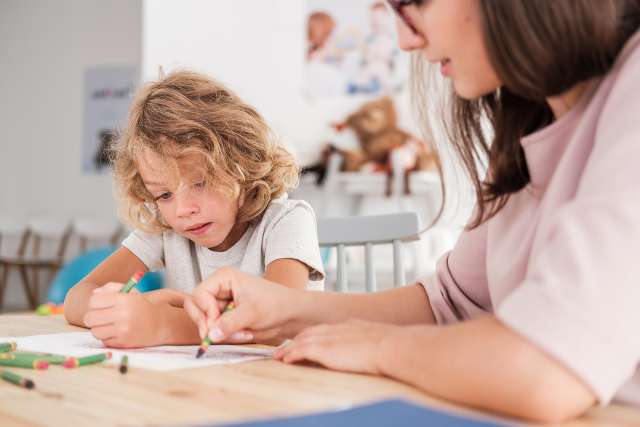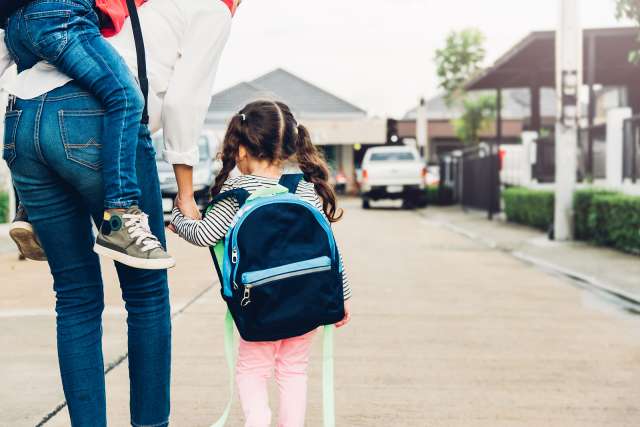Sibling Rivalry: Using Other Approaches to Help Kids Get Along
We have some more strategies for tackling sibling rivalry. Learn how incorporating Gottman style approaches can improve your family dynamic!
This is the third article in our series on parenting.
In part one of this series, we covered some aspects of sibling rivalry. In this blog post, we discussed the common reasons why sibling rivalry is seen in many families and some ways to address it. In our second blog post, we discussed how strengthening your bond with your child can help address sibling rivalry. Overall, we’ve discussed what a common thing sibling rivalry and squabbles are. In reality, there aren’t many families that are immune from sibling rivalry.
Regardless of the age or personality difference, it’s often something that shows up.
Even if you’ve planned to start seeing one of our amazing therapists, there are still some things that you can do in the meantime to help address the dynamic in your household. A great way to help siblings get along is to build positive momentum. Focus on what they do well. Catch your kids sharing and comment on what great companions they are to each other. Catch kids in a variety of situations getting along and be sure to compliment them. Something to keep in mind is that kids love to receive attention from their parents. With this in mind, it’s helpful to capitalize on this and give them attention for the positive behaviors you want to see.
Bring the Magic

In fact, many psychologists agree that for every one critique or disciplinary interaction (any negative interaction) you have with your kids, you should try to have 5 positive interactions to balance things out. This stems from research done by John Gottman and colleagues on 700 newly-married couples. Gottman found that couples who had a 5:1 ratio of positive to negative interactions stayed together. This ratio is sometimes referred to as the magic ratio. In fact, 10 years later, the follow-up studies showed that using this ratio predicted divorce with 94 percent accuracy.
This isn’t just relevant to couples.
Research has now shown that this magic ratio works in a range of relationships including parent child relationships. So, keep the positive interactions coming! What counts as a positive interaction? Here’s a list of a few ways to ensure you have a positive interaction with your child that are outside of specific activities:
-
Show them you’re listening. You can do this by making eye contact with them and maintaining open body language. This is not the time for you to be on your phone! In addition, it can be helpful to acknowledge what they say by what you say and do. Try reflecting back what they say and try to avoid asking questions.
- Be mindful of your tone and face expressions. We’ve all heard that it’s not what you say but how you say it. Well, there’s truth to that! Interacting with your children is no exception. Be aware of the tone you’re using with your children, even if you’re not meaning for it to come negatively. Kids are very aware of tone and will respond accordingly. Additionally, be aware of your face expressions and have it match your words. If you’re trying to show that you’re excited, throw in some smiles! This can help them learn to match emotions to expressions.
Team Projects and Play

Try to make a project that your children can do together alone or with little help from you. Legos work well - can they make their names? How about your last name with each kid working on a letter? Or, let them choose a project or activity. One great way to hit this objective is to buy copies of the same imagination toys. Have three kids of all different ages? Buy three large bouncy balls. Or three pirate costumes. Try identical squirt guns or identical pool floats.
You will be surprised at how this can spark cooperative play in a variety of sibling ages and personality ranges. Another helpful suggestion is to offer some kind of incentive for your kids if they work together. Be creative with this! Try to find something that your kids will all love, or all equally benefit from.
For instance, if they all play together without arguing, they don’t have to help clean up after dinner that night. This will show them that it’s beneficial for everyone when they work together to accomplish a goal. Another way to get kids playing together is getting them to work together. Send your children to get the milk in the grocery store, or several things, but ask them to stick together. Bring them to the park with their bikes. Don’t invite friends; just let them be together.
Sometimes, there is more going on than normal family squabbles.

"School-aged children spend so much of their time at school and away from the family," said Kevin Kidd, an Open Arms Child Therapist. "Bullying, peer conflict and friend drama can have a profound negative impact on them, and when a parent isn't aware of the problem, it's impossible to help your child find a solution. No child wants to come home and say 'I was being teased and picked on all day.' These issues are often more-easily addressed with a mental health professional who has no connection to a child's personal life."
Sure, if your child isn’t telling you that something is going on you likely won’t know. But, a way to help is to take time to build a strong bond with your child so they’ll hopefully feel comfortable to tell you what’s going on. It might not happen overnight, but creating this relationship is possible. Like we previously mentioned, building a strong bond with your child can help your child in a variety of areas, including their relationship with their siblings and friends. And, it can also help to open up about things that are happening.
Begin Child Therapy in St. Louis, MO
We can help with the bickering that’s happening at home. Our therapists can help you through individual therapy, child therapy, or family therapy. We have openings for both in person therapy at our St. Louis based counseling practice and virtual sessions through online therapy. When you’re ready to begin therapy in St. Louis, MO, follow these steps:
- Schedule an appointment with us.
- Get to know our team of excellent child therapists.
- Help strengthen your bond with your child.